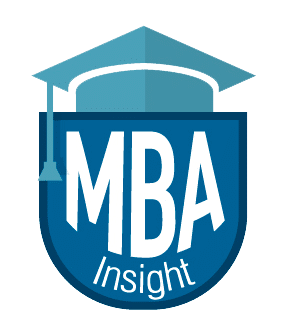Simon Business School- University of Rochester
Rebekah S. Lewin, Assistant Dean of Admissions & Financial Aid What is the one area of your program that you wish applicants knew more about? Our experiential learning opportunities are exciting to our students, and also seem very important to prospective students as well. We offer a variety of options that span both curricular and co-curricular offerings, including: What’s the single most exciting development, change, or event happening at your MBA program this coming year? Our faculty is in the midst of a curriculum review and from that, we are expecting some exciting changes as we align core and elective classes with our co-curricular offerings to best prepare our students for internships and full-time employment post-graduation. Also, on a more personal basis, renovations are currently underway for the Admissions Office to move into a newly renovated space on the main level of Gleason Hall in late September. We will be better equipped to greet and host our growing number of campus visitors in our newly expanded space. Walk us through the life of an application in your office from an operational standpoint. What happens between the time an applicant clicks “submit” and the time the committee offers a final decision (e.g. how many “reads” does it get, how long is each “read,” who reads it, does the committee convene to discuss it as a group, etc.) As soon as an application is submitted online it is processed to make sure that it includes all of the required components. Then there are two concurrent reviews: a quick review for interview consideration and a thorough review of the application. Many candidates are sent to be interviewed while their application is being read by a member of the Admissions Committee. Even if a candidate is not immediately sent for an interview, they can still be invited after the application is read by the Admissions Committee. After the interview and application review is complete, we meet as a group and review each candidate and issue a decision on admission. While this is a rolling process, most decisions are issued around our notification timelines which are linked to the application round when a candidate has applied. How does your team approach the essay portion of the application specifically? What are you looking for as you read the essays? Are there common mistakes that applicants should try to avoid? One key thing they should keep in mind as they sit down to write them? We are really excited to review the essays, as it is a great way to really get to know a candidate’s potential fit for the MBA program. We are assessing career goals, prior work experience (depth), and expected contributions during the MBA program through leadership, teamwork and community/co-curricular involvement. I would encourage a candidate to “be yourself” when you are writing the essays. There is really not a “right” answer so don’t over-think the essays or write what you think the Admissions committee is looking for in a response. Ultimately, the essays, resume, recommendations, and interview are all used together to help us learn about the candidate’s potential for the MBA. Do you have any application tips (for essays & recommendations) for MBA applicants? For recommendations, I always suggest that candidates approach the process thoughtfully. Schedule a lunch or coffee meeting with each person who you hope will write a recommendation letter for you. During this conversation, share background information on why you are pursuing your MBA, your career aspirations, and why you have chosen to apply to specific schools. Be sure to confirm that they have the time available to meet the deadlines for your MBA recommendations and that they are committed to providing a positive recommendation for you. For the essays, have someone who knows you well read your essays once you have written them and have them give you feedback on content. Have you answered the question(s) asked? Does it sound like you? You may not be able to do this for every essay you write, but the initial feedback could be helpful to make sure that you are finding the right things to highlight about your candidacy while also staying within the word limits that most schools have for their essays. What are the most important aspects of the MBA application process besides GMAT score, prior GPA, and current job position? It’s a holistic review, so no one area of the application is most/least important. It is all considered together – overall career path to date, written and oral communication skills, leadership, teamwork, recommendations, co-curriculars, and unique qualities will all be considered when we are assessing admission. How can a candidate overcome a lower GMAT score? There are a few things to consider when assessing GMAT – is the score low on a relative basis but still within the range of admission for the program? If yes, then having a solid undergraduate record and/or recent non-degree coursework in business or math can help offset a lower GMAT or GRE score. However, if the score is low on an absolute basis (i.e. outside the middle 80% range) then you may want to consider re-taking the GMAT to improve your score. The GMAT is one of the aspects of your candidacy that you can impact with some level of effort, so giving enough lead time in your preparation for this part of the application process is important. Our incoming students are heavily focused on their future employment opportunities and as such, the Simon Career Management Center works with enrolling students even prior to orientation to help jump-start the internship and job search process. Available resources include: Our internship and full-time employment rates are around 95% each year, so students find success taking advantage of these offerings.
What resources are available at your MBA program to assist with internship and full-time job opportunities?


